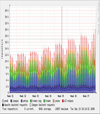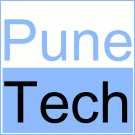 PuneTech is a for-the-community, by-the-community site, and comments by our readers play an important part of the content. However, to ensure that the discussion always stays healthy, constructive and safe, we occasionally have to delete some of the comments. This note lays out our comments policy to help the community understand what kinds of comments we delete, and why.
PuneTech is a for-the-community, by-the-community site, and comments by our readers play an important part of the content. However, to ensure that the discussion always stays healthy, constructive and safe, we occasionally have to delete some of the comments. This note lays out our comments policy to help the community understand what kinds of comments we delete, and why.
PuneTech comment policy – Short version
if (the comment is not relevant to the article)
We will delete it;
/* take your irrelevant rambling elsewhere */
else if (the comment is a personal attack)
we will delete it;
/* rude people not welcome here */
else if (the comment has abusive language)
we will delete it;
/* we are trying to have a civil discussion here */
else if (the comment exposes PuneTech to legal liability)
we will delete it;
/* we don't want to get sued
that distracts from the purpose of this website
more details below */
else
your comment is welcome;
In select cases, we might allow a comment in spite of violating one of the above rules, if it has other redeeming qualities. Also, if we delete a comment, and you really, really want your voice heard, we suggest a workaround that will allow the world to still see the comment.
PuneTech comment policy – Long version
Relevance
Our primary objective is to provide PuneTech readers with focused, relevant articles and discussions. Anything that distracts from this reduces the value of PuneTech for our readers. Hence, any comment that has nothing to do with the article (and trust me, we get a bunch of these), will be deleted (unless we find it very interesting in its own right). If you want a job, please post your resume on naukri.com – don’t post a comment here. If you find yourself compelled to beg for jobs on PuneTech, seriously consider changing careers.
Personal Attacks
We are trying to build a community here, not poison it. Something about the internet makes people more rude than they would be in real life. Please resist the temptation. We love a good argument, we are after all argumentative Indians. But please argue the issues. You might be surprised to discover that it can be done without attacking the character of the other person.
Abusive Language
If it is worth saying, it can be said in polite language. If you have abusive language in a boring comment, we’ll delete it. If you have abusive language in an interesting comment, we will, at our discretion, remove the offending words, or sentences. If you don’t want your comment mangled like this by us, use polite language.
Defamation
PuneTech is a non-commercial website that is run by us on a part-time basis. We make no money from PuneTech. Which means that we have neither the time, nor the money to get involved in legal issues. We cannot afford to retain lawyers to get accurate legal advice. In the absense of that, we have to make a guess based on our understanding of the law. And anything that we think exposes us to legal liability, will be deleted.
Here is our limited understanding of the law:
If something can hurt the reputation of another person or company, legally, we can publish it if and only if it is true. This is tricky because we need to be sure of the truth before we feel safe. Just because it is on wikipedia, does not make it true. Just because Times of India published it, does not make it necessarily true. And we can be sued even if we are simply relaying info published by someone else.
Even if the damaging statements are contained in a comment made by a third-party commenter (i.e. somebody other than us) we are still obligated to remove the comment. Otherwise PuneTech can be held liable.
So it boils down to this: if we cannot verify the truth of a damaging claim in a comment, we will delete the comment.
Please note, just because it is true, does not necessarily mean that we will allow a comment. The earlier filters of relevance, rudeness, etc. still apply. If we are unsure about the “public good” of a true but damaging statement, we will delete the comment.
Other Objectionable Content
Other reasons why comments might fall afoul of the laws are: obscenity; hurting religious sentiments; promoting violence; against security of the state; or infringing of someone’s right to privacy. In most cases, these will get deleted for violating one of our earlier policies (e.g. irrelevance, personal attack, etc.) . In the rare case that the comment somehow manages to not violate any of the earlier policies, it can still get deleted for being against the law.
Workaround
When we delete one of your comments, we are not really preventing you from expressing yourself. Please feel free to go ahead and post it on your own blog. If for some reason, you are ashamed of putting your own comment on your own blog, go ahead and create a brand new blog on blogger.com just for holding this one comment. It’s easy, it’s free, and anybody can do it. Then post a link in the comments on PuneTech. If it is relevant to the post, we’ll probably allow the link to remain.
Suggestions
If you have any feedback for us, please leave a comment below, or send us an email. The comment is subject to the same policies (ha! ha!) unless we decide to change the policy based on your suggestion. In any case, we promise to read everything, even if we delete it.
Moderation
Comments on PuneTech are moderated. Which means that one of us might have to take a look and approve the comment before it appears on the site. Sometimes, it takes us a while to get around to doing this. Please be patient. Don’t post the comment multiple times. If you are unsure of whether your comment has reached our moderation queue, send us an email.
Further Reading
What I’ve learned from Hacker News by Paul Graham. A good introduction to the issues to be considered when deciding why and how to moderate comments on a site.
Free to blog but accountable you are. The Supreme Court of India weighs in on blogging and online expression. – Dhananjay Nene
Of blogs, bloggers and freedom of expression – Mutiny.in
Bloggers Legal Guide from EFF – Note this applies to US law, but still worth reading, as it does a great job of explaining the issues.
Acknowledgements
Thanks to Dhananjay Nene, Rohit Srivastwa, Amit Kumar Singh, Unmesh Mayekar, Manas Garg, Rohas Nagpal, and Debasis Nayak for discussions that helped us clarify our thinking and craft this policy. Note: this comment policy does not necessarily reflect the views of these people – it is just that they helped us while we were struggling to figure out what the comment policy should be.
![Reblog this post [with Zemanta]](http://img.zemanta.com/reblog_b.png?x-id=cc18e5ba-eb17-4172-8d54-ef3efc33ca80)
![Reblog this post [with Zemanta]](http://img.zemanta.com/reblog_b.png?x-id=e1749b78-132c-4366-bb46-cab4ca90c763)


 PuneTech is a for-the-community, by-the-community site, and comments by our readers play an important part of the content. However, to ensure that the discussion always stays healthy, constructive and safe, we occasionally have to delete some of the comments. This note lays out our comments policy to help the community understand what kinds of comments we delete, and why.
PuneTech is a for-the-community, by-the-community site, and comments by our readers play an important part of the content. However, to ensure that the discussion always stays healthy, constructive and safe, we occasionally have to delete some of the comments. This note lays out our comments policy to help the community understand what kinds of comments we delete, and why.![Reblog this post [with Zemanta]](http://img.zemanta.com/reblog_b.png?x-id=a73d0004-2405-4f23-a446-40abe1b3dab2)
![Reblog this post [with Zemanta]](http://img.zemanta.com/reblog_b.png?x-id=ccca8ed3-ebcc-441e-a7b7-fe318fece9a6)